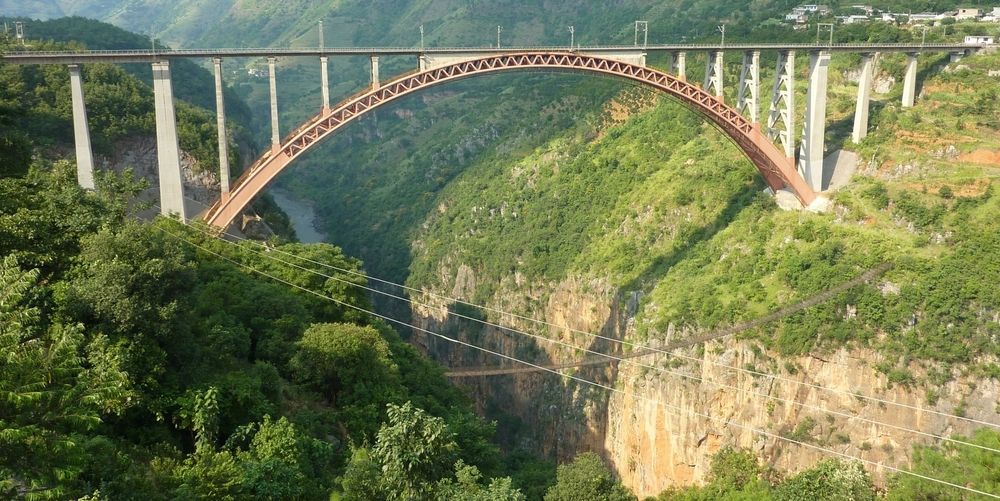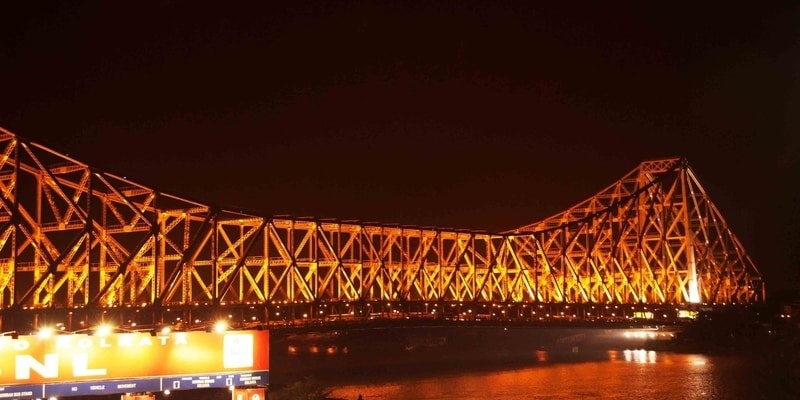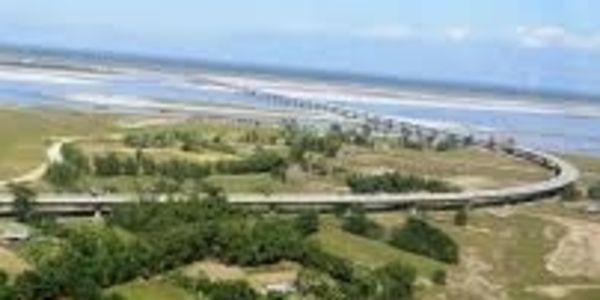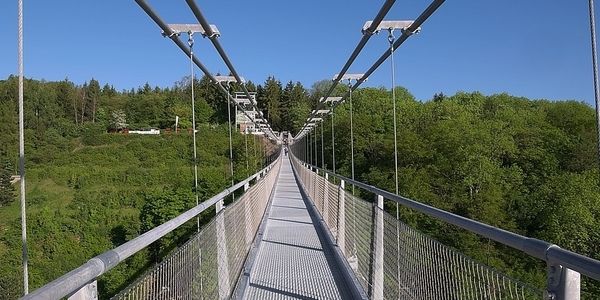Dare to Look Down? Walk India’s New Sky Bridge Over a Waterfall
High above the cascading waters of the Tulsi Waterfall in Chitrakoot, a gleaming glass and steel structure now stands as a symbol of how faith, tradition, and innovation can coexist in harmony. Uttar Pradesh is all set to unveil its first-ever SkyGlass Bridge, a Rs 3.70-crore marvel designed in the form of Lord Ram’s legendary bow and arrow. More than just an architectural attraction, this bridge reflects the state’s growing focus on ecotourism and cultural revival. Officials from the Forest and Tourism Departments describe it as “a blend of spirituality and modern architecture,” a project that celebrates both the natural beauty and divine heritage of Chitrakoot.Chitrakoot: The Land of Divine LegendsFor centuries, Chitrakoot has held a sacred place in India’s cultural memory. It is the land where Lord Ram, Sita, and Lakshman are believed to have spent years during their exile—a landscape that has inspired countless verses of devotion and poetry. Adding to this timeless charm, the SkyGlass Bridge is located above the Tulsi Waterfall, formerly known as Shabari Waterfall. The site has been renamed in honor of Goswami Tulsidas, the saint-poet who composed the Ramcharitmanas and was born in nearby Rajapur. The surrounding forest area has been transformed into Kodand Van, an eco-park named after Lord Ram’s bow. Walking trails, meditation zones, and scenic viewpoints make the entire site a soulful escape for visitors seeking peace, adventure, and connection to nature.An Architectural and Spiritual MarvelThe Chitrakoot SkyGlass Bridge is no ordinary walkway; it is a fusion of devotion and design. Built from reinforced steel and multi-layered laminated glass, the structure extends 25 metres into the gorge and spans 35 metres between two supporting pillars. Shaped like Lord Ram’s bow and arrow, it stands as a symbol of strength, precision, and divinity, qualities deeply associated with the region’s mythology. The bridge’s design can withstand a load of 500 kg per square metre, making it both beautiful and secure.Engineered for Strength and SafetyConstructed by Ghazipur-based Pawan Sut Construction Company, every element of the bridge has been built to international standards. Engineers have used high-strength materials designed to resist environmental stress and temperature fluctuations. The transparent glass panels offer a 360-degree view of the three-tiered Tulsi Waterfall, which plunges nearly 40 feet into a rocky pool below—a visual experience that promises to leave every visitor spellbound. Beyond its architectural beauty, the Chitrakoot SkyGlass Bridge is also a story of sustainable development and community empowerment. The project is part of Uttar Pradesh’s wider initiative to promote eco-friendly tourism in Bundelkhand, one of India’s historically underdeveloped regions. The Forest and Tourism Departments are developing an herbal garden, open-air park, and food court near the site. Local communities are being trained and integrated into every stage of this transformation. Eco-friendly practices such as solar lighting, restricted vehicle access, and waste management systems are being implemented to ensure the natural balance remains undisturbed.Chitrakoot’s New Identity: Faith, Nature, and ModernityOfficials believe that once inaugurated, the SkyGlass Bridge will draw not only pilgrims but also adventure seekers and international tourists. With plans for cultural festivals, eco-camps, and local food events, the region aims to establish itself as a year-round destination. Indeed, the bridge is not just a structure; it is a statement of Uttar Pradesh’s evolving vision, a state that honors its spiritual roots while embracing progress and modern design. There’s something profoundly human about standing on glass, hundreds of feet above rushing water—a blend of fear, awe, and wonder. For many visitors, walking across the SkyGlass Bridge will be more than a sightseeing experience; it will be a journey of reflection and faith. Looking down through the transparent floor, one sees not just the roaring waterfall but also the reflection of a land where legends still live. The bridge becomes a metaphor for courage, for balance, and for the eternal connection between the divine and the earthly. As Uttar Pradesh opens this landmark structure to the public, Chitrakoot is ready to shine once again—this time, through the shimmer of glass and the spirit of innovation.

.png)
.jpg)


.jpg)
.jpg)
.jpg)



